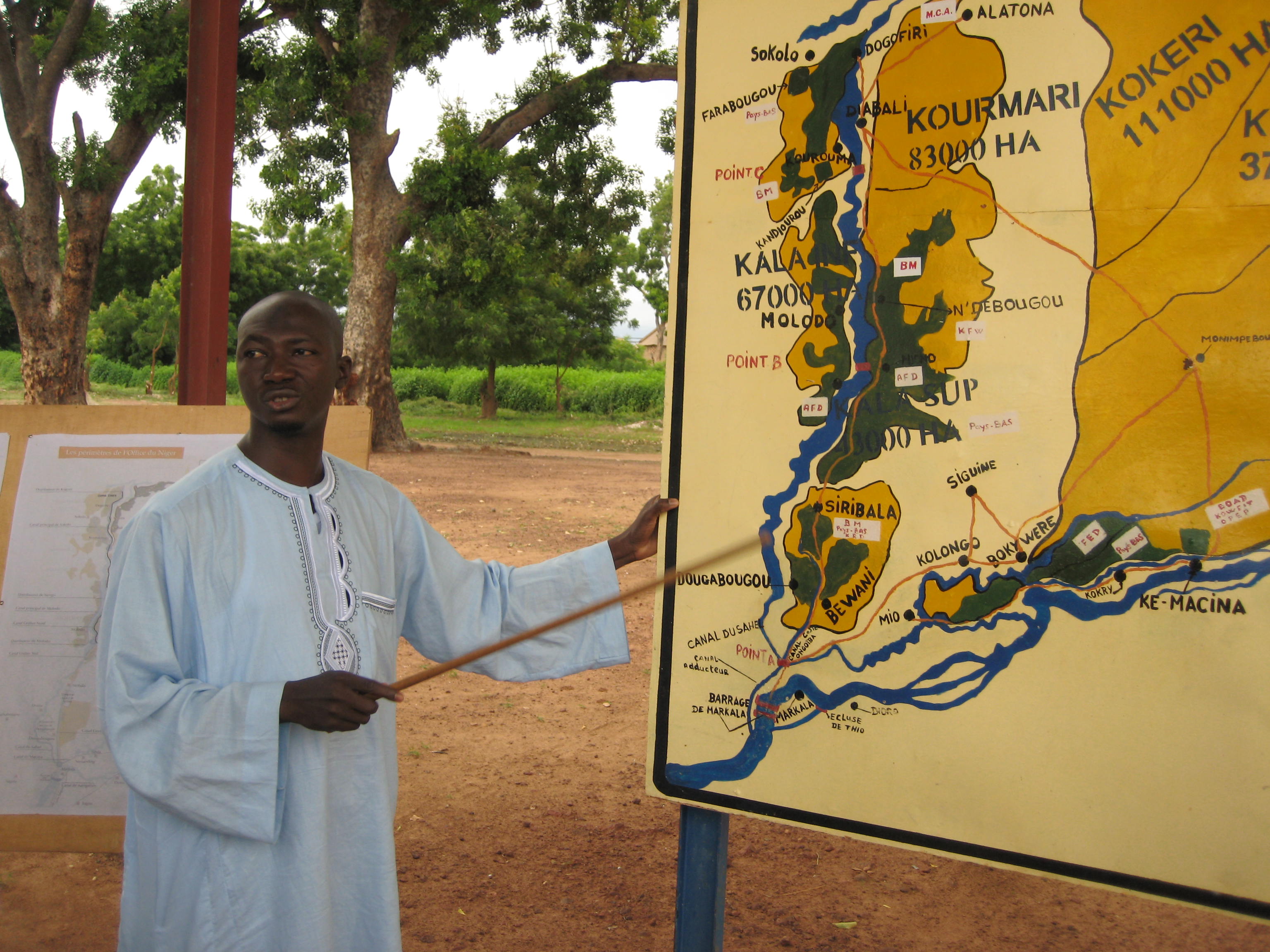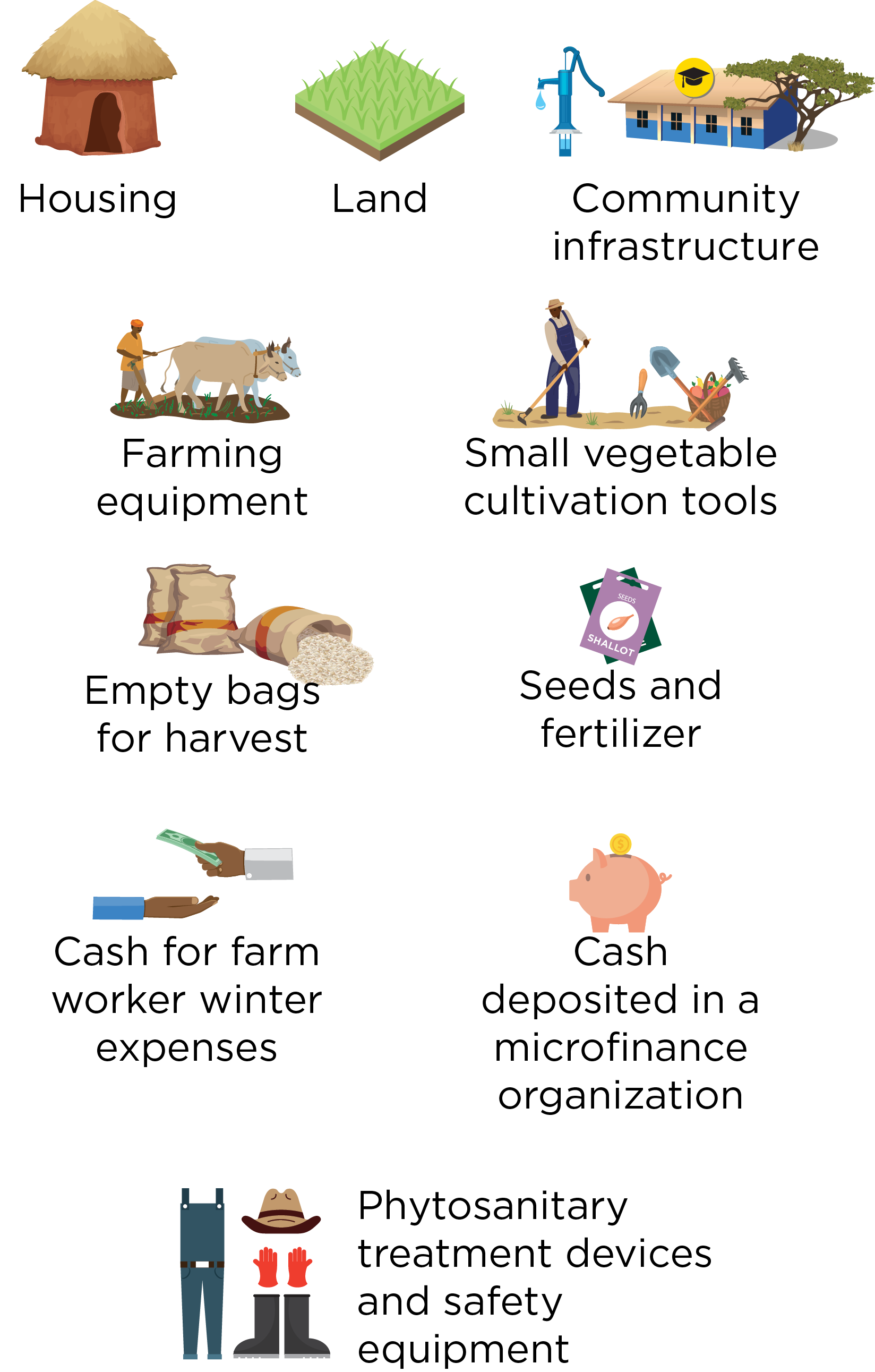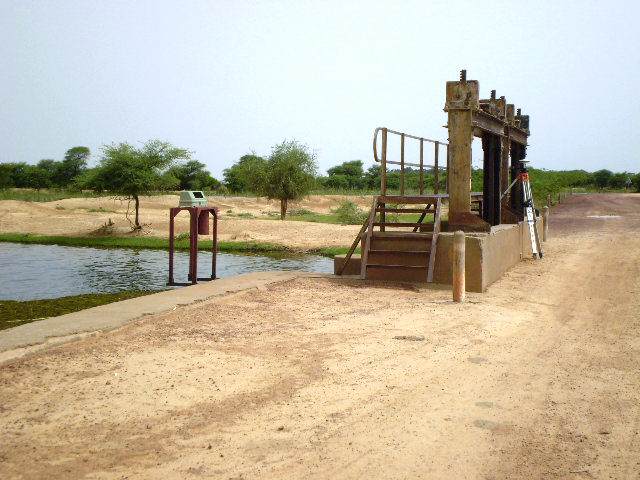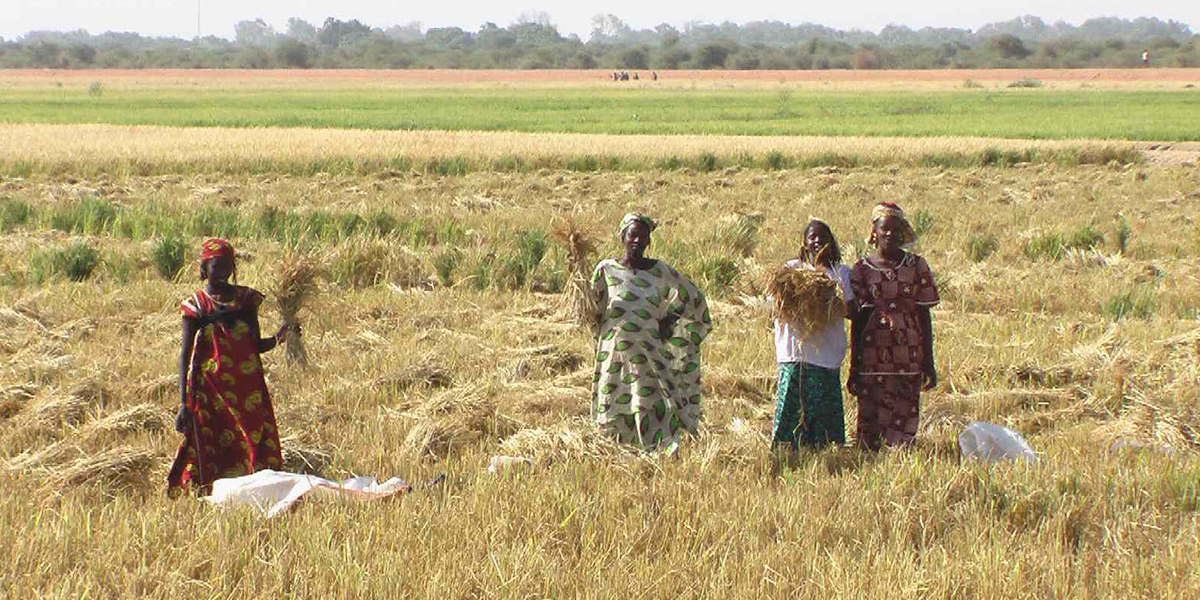Program Overview
MCC’s $434 million Mali Compact (2007–2012) funded the $253 million Alatona Irrigation Project to increase agricultural production and productivity, improve land tenure security, and modernize irrigated production systems by expanding the Office du Niger’s irrigation system, supporting land titling, upgrading 81 kilometers of farm-to-market roads, and providing farmer training and financial services. This work was based on the theory that increasing production and productivity would boost farmers’ incomes. MCC's Board of Directors decided to terminate the Compact early, by no later than August 2012, as the result of a non-democratic change in government in March that year. This brief summarizes interim findings among farmers who were resettled within the Alatona.
Key Findings
Agricultural Production and Productivity
- The total amount of land that households directly affected by the project cultivated increased by a statistically significant 1.6 hectares, largely due to an increase in land that men cultivated.
- Agricultural production in the treatment area increased ten-fold, due to increased fertilizer use and a switch to irrigated rice farmings.
Consumption for Conditions, Resources and Assets
- In contrast to comparison households, project households showed increased consumption with respect to housing conditions, farming resources and assets, including project-transferred assets.
Poverty Reduction
- In contrast to comparison households, project households showed reduced poverty from 40 percent to 22.5 percent. Increases in starter-kit assets the project transferred and non-food consumption drove the declines.
Sustainability
- These measures of significantly increased production and reduced poverty are short-term indicators of project impacts that do not promise sustained impacts without continuing starter-kit grants.
Evaluation Questions
This interim evaluation hypothesized that project interventions would have the following impacts in target villages:- 1 Increased access to irrigation, which would lead to increased agricultural production.
- 2 Increased access to irrigation, which would increase demand for inputs (fertilizer and seed), agricultural capital, and household and hired agricultural labor.
- 3 Increased agricultural income, which would increase consumption per capita, asset and livestock holdings, and input utilization.
- 4 Increased access to land for women through women’s market garden associations/cooperatives, which would increase their incomes.
Detailed Findings
Agricultural Production and Productivity

Man shows a map of the Alatona zone
Consumption for Conditions, Resources and Assets
Project households saw increased consumption in housing conditions (ie. resettlement changes included borehole, concrete walls and latrine), boys’ school enrollment, household farm assets, durable assets among women, and cows’ number and value. However, because project starter kits contributed to durable goods and farm equipment, interim findings also assessed food consumption and found no significant change in consumption.Poverty Reduction

The project designed starter kits to help farmers transition to irrigated agriculture to cultivate five hectares of irrigated land
Sustainability
With the end of the project and starter-kit grant availability, project households’ abilities to learn and improve agricultural skills may not continue since outcomes were heavily tied to the starter-kit grants. Additionally, it is unclear if new settlers and other residents of the irrigated perimeter will be able to sustain these results without these generous starter kits.MCC Learning
No learning was developed for this report at the interim stage. The plan was to develop learning for the final report, but the final report was subsequently canceled.Evaluation Methods

Irrigation equipment on the Niger River
Next Steps
With the 2012 non-democratic change in government and residual turmoil in Mali, IPA was forced to suspend data collection before the entire sample frame was surveyed. The evaluation was subsequently canceled due concerns about the timeline of expected results that IPA put forth. MCC provided a cancellation memo. Given this situation, further evaluation activities have been postponed, but an independent evaluator was commissioned to perform an evaluability assessment.2021-002-2612


